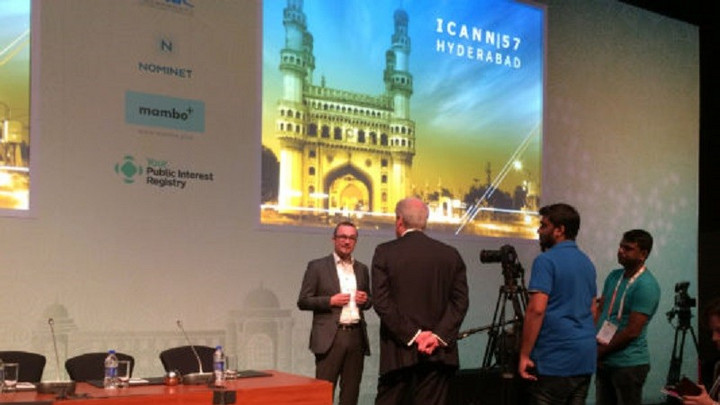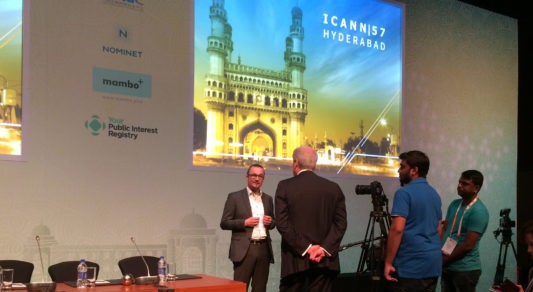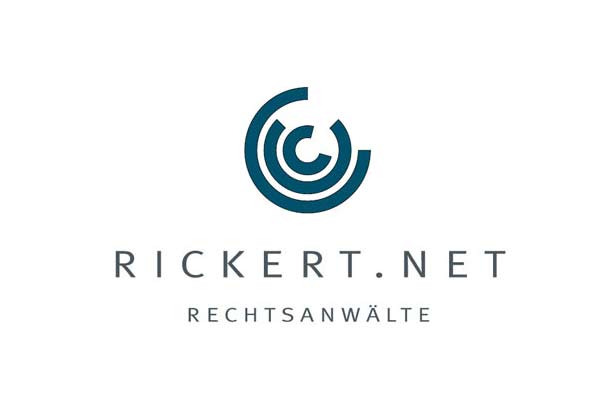A Quiet Global Revolution
Thomas Rickert of Rickert.net tells the story of the success of a revolutionary and promising model of global governance – as established through the ICANN IANA Stewardship Transition – and why you should know and care about the balance of power in Internet governance

March 14, 2014 was likely just another day for you, unless maybe it was your birthday.
However, for a lot of folks around the globe, this day was memorable or it became important to them subsequently - including myself. With this article, I would like to share with you how that day substantially impacted the world of Internet governance and beyond. And what is so exciting about this is that the model of governance that evolved out of the process that began on March 14, 2014 has the power to change the way we manage global issues in future. A model which recognizes that it’s not only governments, and it’s not only multinational corporations that have a stake in global issues. It’s also the civil society – the you and me of our world – who have a stake in the global future, and who should also have a say in how it unfolds. And so, if you take the time to read this, you might agree that March 14, 2014 changed a lot. Silently, almost unnoticed.
But let’s start at the beginning of the adventure: On March 14, 2014, the U.S. Commerce Department’s National Telecommunications and Information Administration (NTIA) announced its intent to relinquish its historical oversight role over the IANA functions to the global multi-stakeholder community.
The Challenge
The NTIA asked ICANN, the Internet Corporation for Assigned Names and Numbers, to convene a multi-stakeholder process to develop a plan for this transition. The plan the NTIA required had to have broad community support and meet the following requirements:
- Support and enhance the multi-stakeholder model
- Maintain the security, stability, and resiliency of the Internet DNS
- Meet the needs and expectations of the global customers and partners of the IANA services.
- Maintain the openness of the Internet.
The NTIA also stated that it would not accept a proposal in which the US Government's (USG) role would be replaced by a government-led or intergovernmental organization.
The community started discussing how this job could be done and it quickly became clear that ICANN’s accountability should be enhanced so that the organization, and with that the important functions it performs, are protected from undue influence and risks to preserve the resiliency and stability of the DNS.
For those who are not familiar with ICANN or IANA, the IANA functions have to do with IP adresses, Protocol Parameters and Domain Names; the management of the Root Zone Database to be more specific.

Thomas Rickert at ICANN 57 in Hyderabad, November 2016: Session on IANA Transition Work Stream 2
So what was the USG's role and why did the USG have this role in the first place?
Before ICANN’s inception, way back when the Internet did not yet exist, but ARPANET had started – a network funded by the U.S. Department of Defense – the IANA functions were performed by Dr. Jon Postel.
ICANN was formed as an organization based on a global bottom-up multi-stakeholder approach. This governance model was brand new at the time, and no one knew whether it would work. As a result, the USG retained authority over the IANA functions, but entered into written agreements and contracts with ICANN on the mutual roles.
However, the oversight role was only planned to be temporary, so what happened in March 2014 was carrying through on a promise made by the USG more than a decade earlier.
Why did the USG want to hand it over?
The Bush administration did not make any efforts to relinquish the USG oversight role. Obama did and we do not know for sure what exactly triggered the process. Yes, the USG oversight role was only meant to be in place until such time that ICANN’s multi-stakeholder model had proven a workable approach, but that was surely not the only reason for Obama’s actions. The statement was issued at a time when Snowden had made his revelations and many countries were upset with the US control and surveillance of the Internet. With several governments going public with their intent to start their own Internet (I'm paraphrasing here) as a reaction, the USG announcement did help the USG to bring many countries back to the table and maintain a non-fragmented Internet.
How important was this role?
It is true that the USG did not play a huge role. In practical terms, it was more or less limited to signing off on requests prepared by the IANA team at ICANN on delegation requests for Top Level Domain Names. In other words: All the new Top Level Domain Names that were launched over the past few years need to go through this process and be entered into the Root Zone Database to be functional at the global level via the DNS. That was never a big deal and even TLDs such as the “virtual red light district” TLD “.xxx” were approved by the NTIA despite fierce debate in the US.
What was far more important was the threat that the USG held over ICANN – to go elsewhere to have the IANA functions performed if ICANN chose not to follow the USG’s directions or wishes. Indeed, the USG required ICANN to constantly work on its accountability and transparency, for example.
All in all, the IANA Stewardship Transition from the USG to the global multi-stakeholder community was given more weight than it should have from an operational perspective. But, the symbolic importance was and is huge, as for many it was tantamount to answering the question “Who controls the Internet?”. Some even went as far as claiming that whoever runs the IANA functions runs the Internet, and can regulate content. Today, we would likely call such a statement an “alternative fact”.
A Herculean Task
The community went to work. In fact, different actions were kicked off to work in parallel. Each of the three IANA functions had a team working on a transition proposal for their respective areas. In addition, a co-ordination team (called ICG) was set up to coordinate the proposals on Numbers Resources (delivered by the CRISP Team), Domain Names (delivered by the CWG-Stewardship) and Protocol Parameters (delivered by IANAPLAN). As a separate track, the CCWG Accountability worked on enhancements to ICANN’s accountability.
The community knew that the job needed to be finished before the end of the Obama administration, due to the uncertainty of whether a transition would be supported by Obama’s successor.
ICANN’s new gTLD program, which led to the introduction of more than 1,000 new generic Top Level Domain Names and which sparked off considerable debate about TLDs that were geographical names, generic terms such as corporate identifiers or relevant to regulated professions, has caused an increased interest by many public and private stakeholders in ICANN. Combine this with the huge symbolic value the IANA functions were given and it becomes obvious that a wide range of views was formed about how ICANN should be governed and who should have what power in controlling such a critical resource.
With the limited time given to come up with a proposal, many doubted that it would be possible for the global community to come up not only with a proposal, but with a proposal that was broadly supported.
A lot was at stake: Not only could the window of opportunity be missed to get the transition done, but, maybe even more importantly, the multi-stakeholder model would have proven to be inefficient and unable to deliver solutions to global challenges.
The biggest teams had more than 150 (CWG-Stewardship) and 200 (CCWG-Accountability) individuals working in them with backgrounds as diverse as can be. There were times where it looked like there were irreconcilable differences in opinion.
More than 1,100 meetings, more than 33,100 mailing list exchanges, more than 600 calls and meetings, and millions of dollars later, the task had been accomplished. The best possible legal advice was obtained to ensure all requirements and features that the community had established could be legally implemented.
It took the community roughly two years to work on and refine the proposals. There were multiple public comment periods in which input from everyone interested in the topic worldwide was solicited, analyzed, and considered for improvements of the proposal. Let’s not forget the existing ICANN structure and its Board, who also had firm views on how the organization should and should not be changed. Robust and, at times, high-handed discussions helped ensure that no stone was left unturned to explore what the best possible and most feasible solution to the issue should be.
Ultimately, ICANN submitted its report to the USG. It was assessed by the NTIA and even examined by a group of corporate governance experts including Columbia Law Professor John Coffee, Brooklyn Law Professor Dana Brakman Reiser, and The Berkman Center for Internet & Society at Harvard University to review the ICANN accountability provisions, who concluded that the accountability recommendations are consistent with sound principles of good governance. Thus, the NTIA announced on June 9, 2016 that the criteria established in March 2014 were met.
Well done, you might think. But not everyone did.
Oh no, not another hurdle!
Those who opposed the transition used propaganda to try to prevent it from happening. They tried to establish a law that would have made it harder. They tried to render it impossible by means of budget allocation for the NTIA (or lack thereof), and they even took it to court. “Barring any significant impediment”, the NTIA’s plan was to let the existing contract with ICANN on the IANA functions expire by the end of September, 2016. Only on the last day of September was the application for a temporary restraining order preventing the transition from taking place rejected by a judge in Texas.
Sigh of relief
ICANN became independent of government oversight as of October 2016. It was a close race, but all the controversy made it even stronger. What’s been called the Empowered Community now has ultimate control over ICANN and the IANA functions. The Board or Board members can be removed if need be, ICANN and IANA budgets can be rejected, as can strategic and operating plans, bylaw changes can be controlled, a binding and improved Independent Review Process has been established, amongst other things. The full several-hundred-page report including summaries and graphics can be found here: https://www.icann.org/resources/pages/board-ntia-transmissions-2016-06-13-en.
Outlook
The transition was successfully completed, but more work needs to be done. The accountability work still needs to be finished, as only those accountability enhancements that were directly related to the transition had been worked on in the first phase. Now, work on important topics such as diversity, transparency, and certain aspects of jurisdiction are still under way. Also, the different parts of the community, such as the Governmental Advisory Committee, the Generic Names Supporting Organization, the At Large Advisory Committee, the Country Code Names Supporting Organization and the Address Supporting Organization are in the process of synchronizing their own operating methods with those required in the new ICANN.
The most important aspect, though, is that a global community of officials and volunteers with very diverse backgrounds came together and found a consensus solution to a global issue. Their dedication and tireless efforts were nothing short of remarkable and therefore the IANA Stewardship Transition deserves to be the role model for functional multi-stakeholder work. We need multi-stakeholder responses to a multitude of global issues. ICANN is not the place to solve those issues, but it has created a blueprint of how problems can be tackled and resolved in a relatively short period of time.
Have we made everyone happy? No, far from it. Nobody got everything they wanted, but we have made everyone equally unhappy. That’s what makes a good compromise.
Thomas Rickert, Attorney-at-law and owner of Rickert Rechtsanwaltsgesellschaft mbH, Bonn, Germany (rickert.net) chairs eco’s Names & Numbers Forum. He is one of three co-chairs of the CCWG-Accountability.
Find more information on the IANA Stewardship Transition on eco International.
Please note: The opinions expressed in Industry Insights published by dotmagazine are the author’s own and do not reflect the view of the publisher, eco – Association of the Internet Industry.



